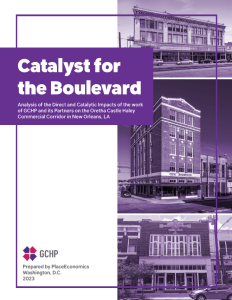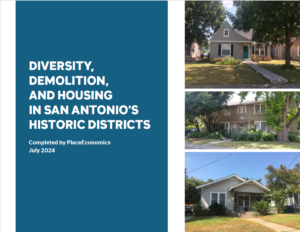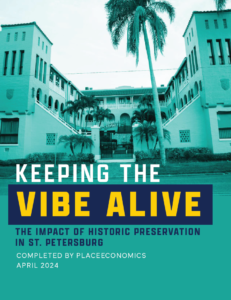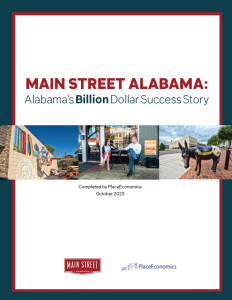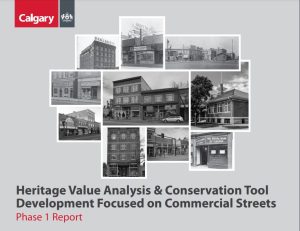Research and Analysis
Over the past two decades, no firm or institution in America has conducted more analyses of the economic impacts of historic preservation than has PlaceEconomics. Beginning in 1995 with the first statewide study of the impacts of preservation in Virginia, we have prepared impact analyses in over a dozen states. Statewide historic preservation advocacy organizations and State Historic Preservation Offices continue to rely on PlaceEconomics to measure the impacts of Main Street, State Historic Tax Credit programs, and statewide grant programs. In recent years, clients at the local level have recognized the need for robust, defensible analysis of not just the economic impacts of historic preservation but the social, cultural, and environmental impacts as well. In recent years, PlaceEconomics has completed city-level studies in cities and towns of all sizes, from large cities like New York City and Los Angeles, to smaller cities like Cumberland, Maryland and Saratoga Springs, New York.
Our research is continually evolving as we tackle assignments of greater urgency. Considering the dynamic nature of the cities we study and the challenges they face, including climate change, the affordability crisis, COVID-19, and the increasing rate and severity of natural disasters, PlaceEconomics has expanded our methodologies to help our clients respond to these challenges. We have recently conducted studies on the contribution of older housing stock to affordable housing, the benefits of deconstruction and building material reuse, and the impact of climate events on cultural heritage.
Citywide Studies
Clients at the local level have recognized the need for robust, defensible analysis of not just economic impacts but social, cultural, and environmental impacts as well. In recent years PlaceEconomics has done city level studies in cities of all sizes including: New York City, Los Angeles, Nashville, Saratoga Springs, Cumberland MD, Indianapolis, Miami-Dade County, and more. These studies look specifically at local historic districts, identifying patterns that exist there that are different than in the rest of the city. Possible metric include: property value change, job and business creation, population density, demographic patterns, walkability, foreclosure rates, tree canopy coverage, landfill diversion, embodied energy calculations, and more. Read through a few of our recent citywide studies:
Main Street
Main Street is economic development within the context of historic preservation. Over 40 years, Main Street has helped over 2,000 communities revitalize their downtowns by promoting their unique sense of place. State Main Street directors have seen the need to have an outside analysis of the long term impacts of their programs. PlaceEconomics has conducted many of these studies including North Carolina, Arkansas, Louisiana, Michigan, Iowa, and New Mexico.
Tax Credit Studies
PlaceEconomics has a long history in the analysis of the economic impacts of historic tax credit programs. When the National Trust sought to demonstrate the catalytic impact of the Federal Rehabilitation Tax Credit, it was PlaceEconomics that got the assignment. We have studies statewide historic tax credit programs in Louisiana, Arkansas, Pennsylvania, Delaware, Rhode Island, and Oklahoma. In Baltimore, Maryland, we studied the impact of the city's local rehabilitation tax credit.
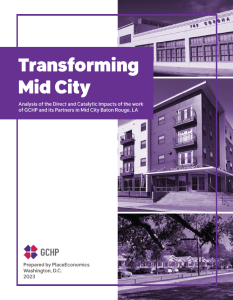
November 2023
Transforming Mid City: Analysis of the Direct and Catalytic Impacts of the work of GCHP and its Partners in Mid City Baton Rouge, LA
Read More